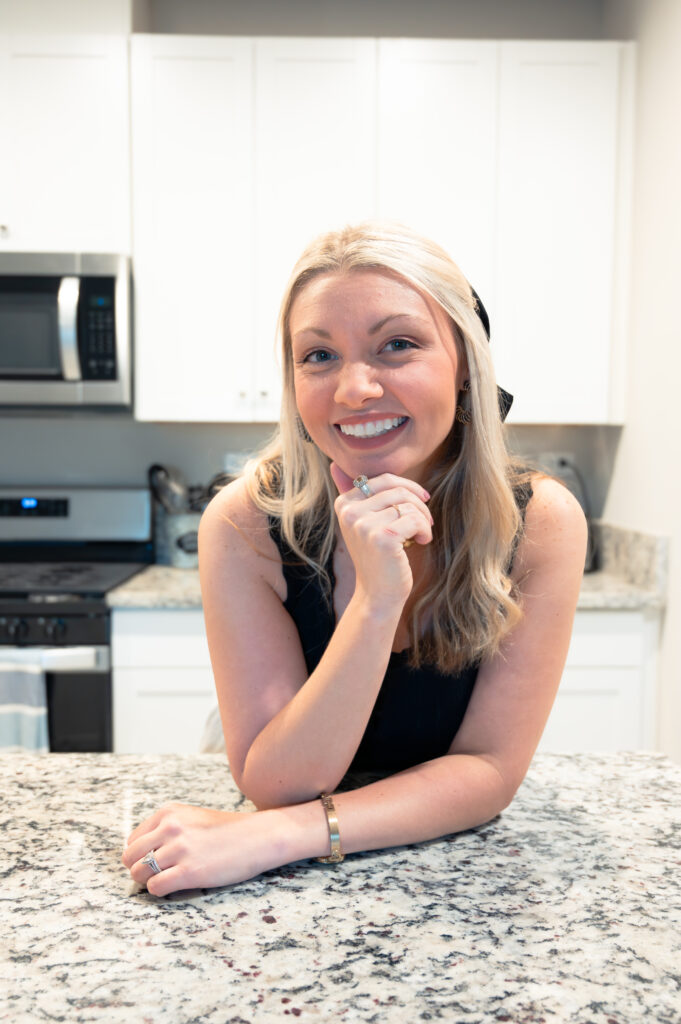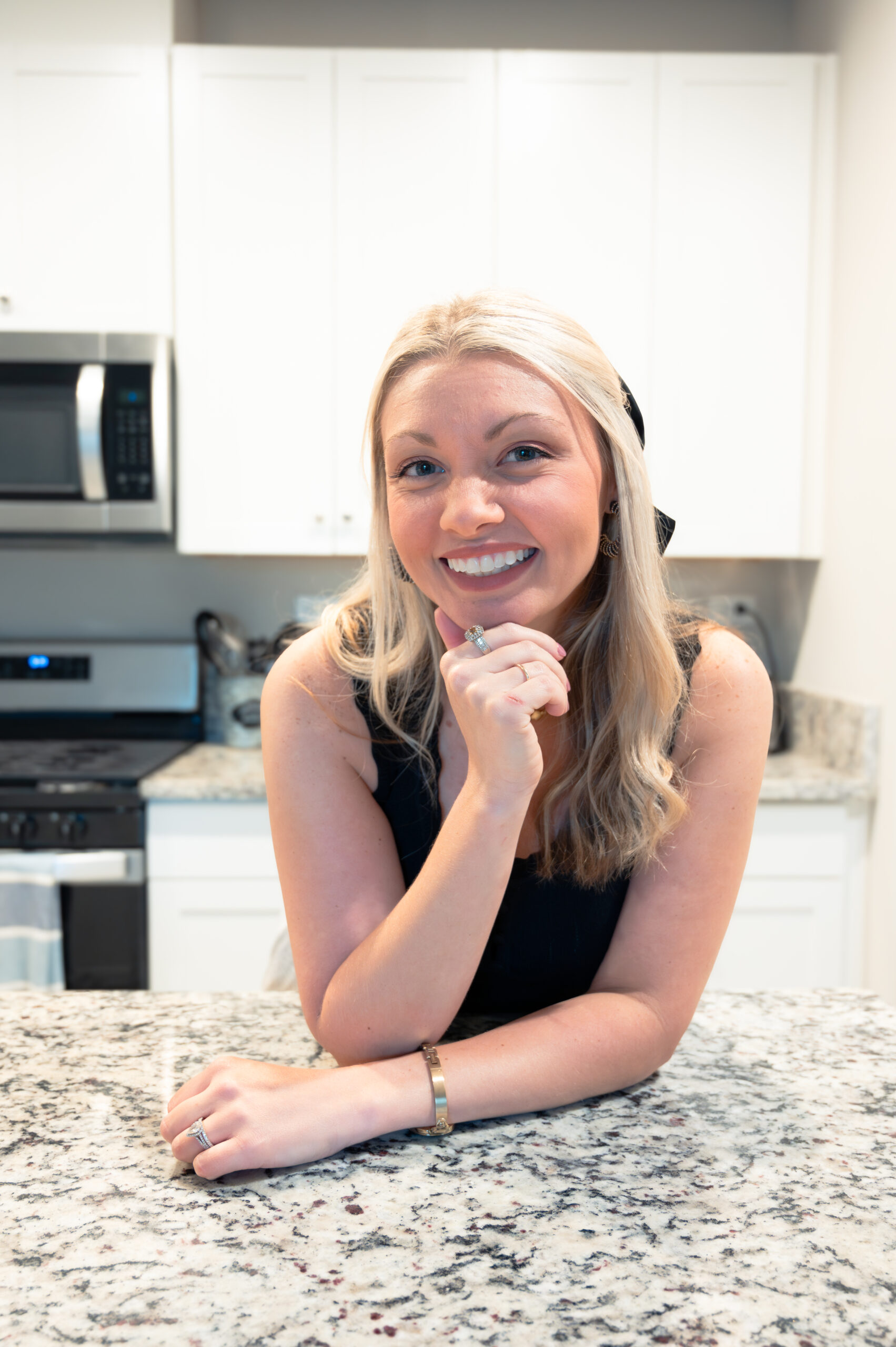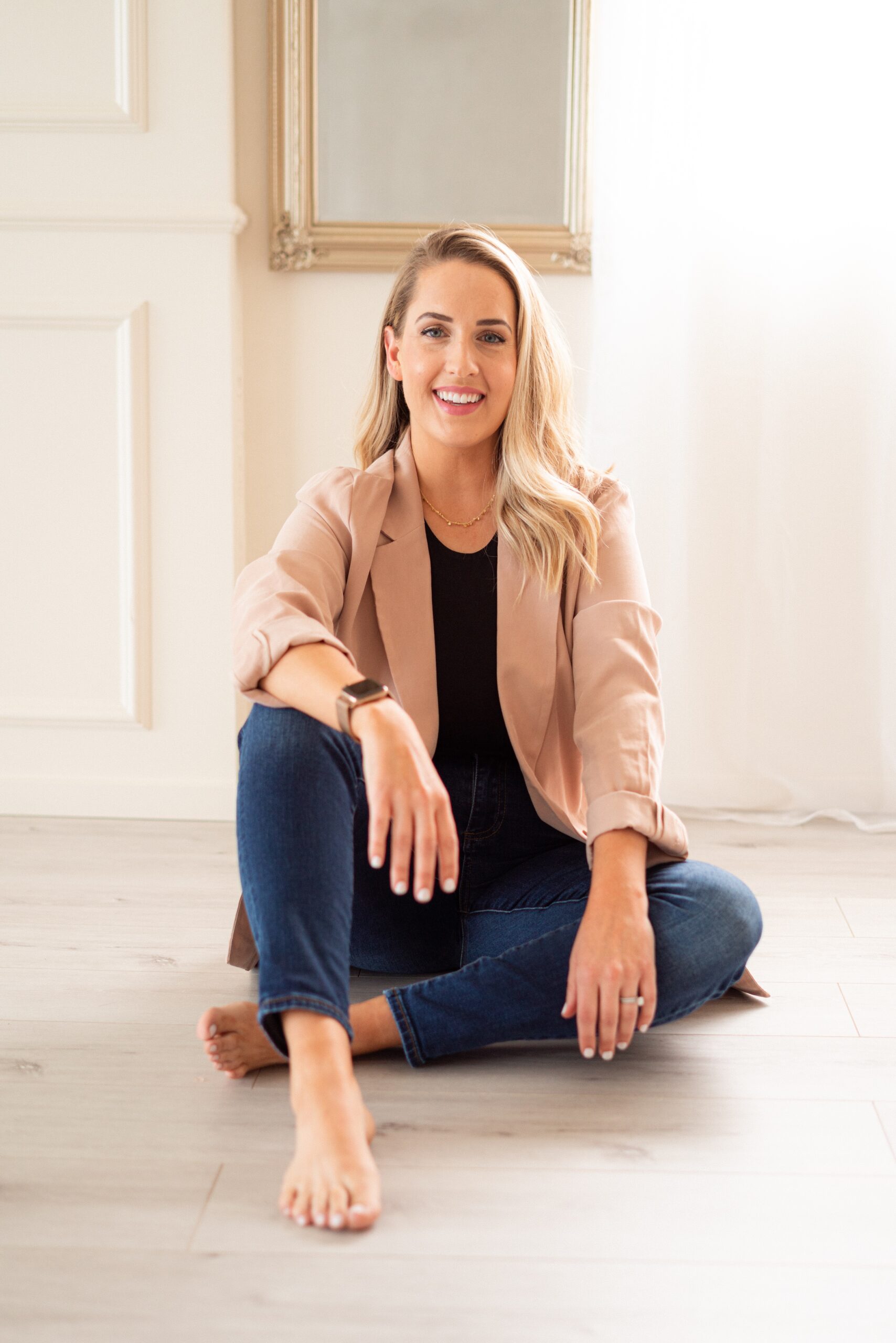
If you’ve ever found yourself stuck in a cycle of strict dieting, guilt, and self-sabotage, you’re not alone. In my latest INHABIT Podcast episode, “Ditch the Diet: Why All-or-Nothing Mindset Is Sabotaging Your Health,” I sat down with holistic nutrition coach Laura Banks to unpack why perfectionism and black-and-white thinking are the real culprits behind so many failed health journeys. If you’re ready to break free from toxic diet culture and finally build habits that last, this episode—and this post—are for you.
Why the All-or-Nothing Mindset Fails Us
Let’s be honest: most of us have tried to “be good” with food, only to fall off the wagon and spiral into guilt. Laura Banks calls this the “all-or-nothing mindset,” and it’s a trap that keeps us stuck. As Laura shared, “If you have an all-or-nothing mindset in your health, you probably have it in your relationships, your spirituality, and all these other areas of your life too.” This episode hit home for me, and I know it will for you too.
The problem with the all-or-nothing approach is that it sets us up for failure. We think we have to be perfect, and when we inevitably slip up, we feel like we’ve ruined everything. Laura explained, “Change starts with awareness. I had to be aware that I was someone who had an all-or-nothing mindset, who was feeling guilty over one mistake and then letting that turn into three or four days, which turned into a couple weeks, which turned into a month.” Sound familiar?
The Perfectionism Trap
Perfectionism is often celebrated in our culture, but as Laura and I discussed, it’s actually a huge barrier to real, sustainable health. Growing up, many of us heard messages like, “Anything worth doing is worth doing right.” For Laura, that translated into, “You gotta be perfect or it’s not worth doing at all.” This mindset doesn’t just affect our eating habits—it seeps into every part of our lives.
One of my favorite moments from the episode was when Laura said, “God doesn’t really care if I’m doing all those things. Just like in our health, it doesn’t matter if we’re misstepping here or there. If the majority of our actions are in alignment with our goals, we will reach our goals over time.” That’s a powerful reframe for anyone who’s ever felt like a single “bad” meal ruined their progress.
Boundaries, Not Restrictions
A major theme in our conversation was the difference between boundaries and restrictions. Diet culture teaches us to restrict—to cut out foods, to label them as “good” or “bad,” and to punish ourselves for eating the “wrong” thing. Laura challenges this by encouraging boundaries instead. “I only eat sweets after having a well-balanced meal or snack. I don’t have them on an empty stomach. I move my body after eating them. I have boundaries around these foods rather than restricting myself and never letting myself have them.”
This approach is not only more sustainable, but it also helps heal our relationship with food. As Laura put it, “When we have that mindset around food and that language around food, calling it good or bad, that then translates to how we feel about ourselves.”
Curiosity Over Judgment
One of the most actionable takeaways from this episode is the idea of approaching your health journey with curiosity, not judgment. Instead of beating yourself up for missing a workout or eating something “off plan,” ask yourself what got in the way. Laura’s advice: “Approach yourself and the mindset you have from a place of curiosity rather than a place of judgment. It’s so easy for us to blame ourselves, feel guilty about everything, talk so mean to ourselves—things we would never say to somebody else.”
This shift in perspective is a game-changer. It allows us to reflect, adjust, and keep moving forward without the emotional baggage that so often derails our progress.
What Does a Well-Balanced Meal Really Look Like?
Forget the fads and extreme diets. Laura broke down what a truly balanced meal looks like:
- Protein
- High-fiber carbs
- Veggies
- Healthy fats
She also debunked the myth that fats are bad, reminding us, “60% of our brain is made up of fat. If we don’t eat enough fats, then our brain is going to start to wither away.” For women especially, healthy fats are crucial for hormone production and overall well-being.
Meal Planning That Actually Works
If you’re like me, meal planning can feel overwhelming or boring. Laura’s “cook once, eat twice” method is a lifesaver: cook a meal one night, eat the leftovers a couple of days later, and rotate recipes for variety. This simple strategy makes healthy eating more sustainable and less repetitive.
She also emphasized the importance of having a plan, but not being so rigid that you lose all joy in eating. “Instead of saying, ‘On Monday we’re having tacos, Tuesday is burgers,’ just buy the ingredients for three recipes and decide what you want to eat each day. Allow for variety and spontaneity.”
Key Takeaways from the Episode
Here are the main points you don’t want to miss:
- The all-or-nothing mindset is the real reason most diets fail.
- Perfectionism keeps you stuck and sabotages your progress.
- Boundaries with food are more effective than strict restrictions.
- Curiosity and self-compassion are essential for lasting change.
- A well-balanced meal includes protein, fiber, veggies, and healthy fats.
- Meal planning can be flexible and still support your goals.
Quotes to Remember
“If you have an all-or-nothing mindset in your health, you probably have it in your relationships, your spirituality, and all these other areas of your life too.” – Laura Banks
“Boundaries, not restrictions, are the key to food freedom.” – Laura Banks
Why You Need to Ditch the Diet for Good
If you’re tired of yo-yo dieting, food guilt, and feeling like you’re never “good enough,” it’s time to ditch the diet and rethink your approach. The all-or-nothing mindset is sabotaging your health, but you can break free. By embracing boundaries, practicing self-compassion, and focusing on progress over perfection, you’ll finally build habits that last.
Ready to take the next step? Listen to the full episode with Laura Banks on Apple or Spotify for even more insights, or connect with her on Instagram and TikTok at @laura.b.healthy. And if you found this helpful, share it with a friend who needs to hear that health is about progress, not perfection.
This blog post was generated by AI. Want to learn how I do this in 5 minutes or less? I teach this and more in The Audio Authority Blueprint Podcast [Systems Only] program. Click here to learn more.



Comments +